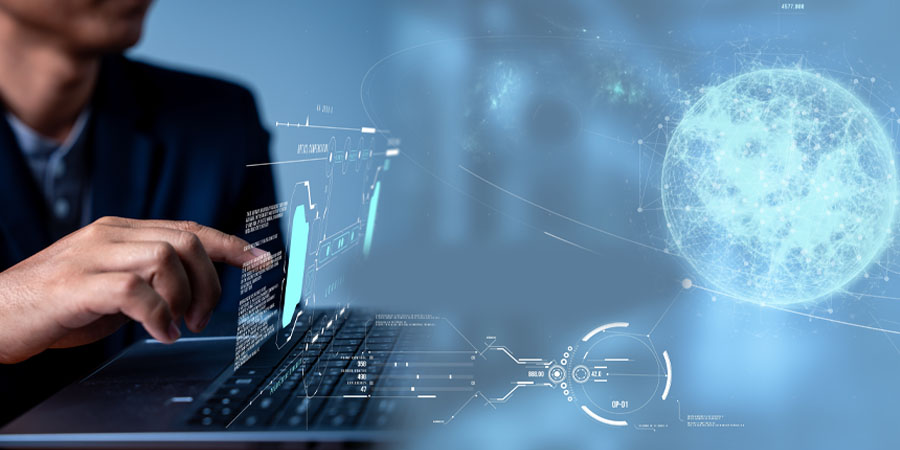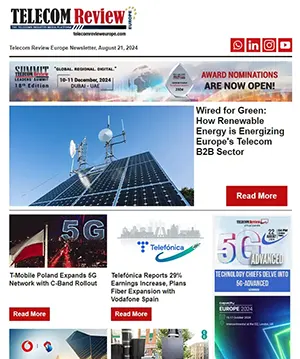As Germany grapples with stagnating growth and dwindling competitiveness, the metaverse emerges not just as a futuristic novelty but as a crucial component for revitalizing its industrial sector.
Germany’s metaverse market is anticipated to hit USD 2.9 billion in 2024, according to Statista. This market is projected to grow at an annual rate of 37.97% from 2024 to 2030, reaching an estimated USD 19.7 billion by the end of the decade.
The metaverse, an immersive, 3D, virtual, shared world enabled by extended reality technologies, is often associated with gaming and headsets. However, its potential extends far beyond these applications, intertwining with advancements in artificial intelligence (AI), Internet of Things (IoT), automation, and blockchain. For Germany, these technologies offer a lifeline in an era marked by rising labor costs and insufficient digitization.
The metaverse represents a significant evolution of the internet, moving beyond mere buzzwords to embody a tangible, immersive 3D experience integrated with advanced technologies. Beyond augmenting existing operations, it can facilitate the reshoring of profitable manufacturing and technology activities, which are being increasingly outsourced to lower-cost regions.
Also Read: Germany’s IoT Market on Track to Reach USD 47.87 Billion in Revenue by 2024
Telecom Operators and the Metaverse
High latency remains the primary barrier to achieving an optimal metaverse experience. The gaming industry, a precursor to the metaverse, is already grappling with latency issues, particularly in multiplayer settings where delays can ruin gameplay. As the metaverse moves towards a more complex, three-dimensional environment, ensuring minimal delay becomes even more critical.
The metaverse presents a significant opportunity for telecom operators. Many regions are still relying on non-standalone networks, thus, telcos have the chance to distinguish themselves as key enablers of metaverse technology. Upgrading 5G networks and preparing for 6G, which is anticipated to come into effect around 2030, aligns perfectly with the timeline for large-scale metaverse deployment. The current competition for 5G dominance could easily shift to a race for leadership in metaverse solutions.
Moreover, the metaverse’s reliance on robust computational resources opens a new avenue for telcos. Traditionally, tech companies have dominated in cloud computing, but telcos are now investing heavily in data centers and mobile edge computing. By integrating these solutions with their telecom infrastructure, operators can position themselves as crucial computing services providers, gaining a competitive edge.
In addition to infrastructure and computational resources, telecom operators can leverage their expertise in cybersecurity AI. The metaverse’s continuous operation requires advanced analytics and cybersecurity measures. As regulatory authorities push for stronger cyber defenses, telcos can capitalize on this by offering sophisticated cybersecurity solutions and investing in AI to enhance their capabilities.
Also Read: Vodafone and Ericsson Set to Roll Out Compact 5G Antennas Across Germany
Strategic Implications for the German Industry
The metaverse’s promise is substantial but not guaranteed. Germany’s industrial sector, especially the automotive industry, is set to face dire consequences as a result of delayed adoption. Research indicates that failure to integrate digital twins and other metaverse technologies could result in substantial loss.
This risk is accentuated by the competitive global landscape. U.S. firms are adept at incorporating digital tools into their operations, while China is aggressively pursuing its metaverse strategy. Germany must act decisively to avoid falling behind.
The metaverse could significantly drive growth and competitiveness in Germany by creating new markets, enhancing VR/AR advancements, and integrating with Industry 4.0. It can revolutionize remote work, improve workforce training, and boost cultural industries through virtual tourism and media innovations. Supporting a vibrant startup ecosystem and fostering interdisciplinary R&D will spur entrepreneurial growth and technological leadership. Investments in 5G, cloud computing, and global governance standards will further strengthen Germany’s economic position and export potential.
Read More: AWS Reveals EUR 7.8 Billion Investment Plan in European Sovereign Cloud
Real-World Applications
German companies are already exploring the metaverse’s potential. Siemens, for instance, leads in digital twins, allowing manufacturers to replicate physical facilities in virtual environments for enhanced operational efficiency.
The rise in global temperatures has made urban greenery maintenance challenging in Germany, often resulting in improper watering of trees. To address this, an IoT project in Erlangen, led by Vodafone Germany, Agvolution, and Friedrich-Alexander University, is using sensors to monitor soil conditions and weather factors. These sensors collect real-time data on soil moisture, temperature, and other environmental variables.
By creating digital twins of the monitored trees, the project enables accurate, virtual representations of tree conditions. This real-time data helps predict tree behavior and optimize maintenance, such as adjusting watering schedules, which is especially crucial during dry periods. The approach not only conserves water—saving an estimated 250 cubic meters in Erlangen—but also reduces the need for new tree planting by preserving existing ones.
Additionally, Deutsche Telekom is developing metaverse infrastructure, including 5G networks and VR/AR applications, to support immersive experiences.
Furthermore, the Fraunhofer IEM society is actively involved in various research projects related to virtual reality (VR), augmented reality (AR), and immersive environments that contribute to the metaverse ecosystem.
In the cultural realm, German institutions like the German Museum of Digital Art are experimenting with virtual exhibits and immersive cultural experiences in the metaverse.
Furthermore, Germany can also draw deeper inspiration from Finland, which has become a metaverse pioneer in Europe following the launch of its Metaverse Initiative. Finland’s Metaverse Initiative focuses on shaping the future of digital experiences, emphasizing ethical and responsible development. This includes prioritizing privacy, user safety, and evaluating the overall societal impact of the metaverse.
Telecom Review Europe Analysis: Telecom’s 5G Evolution in Europe: Regulatory and Data Privacy Challenges
The metaverse holds transformative potential for Germany’s sectors, but its benefits are contingent on strategic adoption and investment. The Federal Government and industry leaders must act swiftly to harness the metaverse’s capabilities fully. This involves not only embracing new technologies but also addressing existing weaknesses in funding and skills.
In the grand scheme of things, the metaverse could well be the catalyst for Germany’s renaissance, driving productivity and competitiveness in a rapidly evolving global economy. As the country navigates this technological shift, proactive engagement with the metaverse will be crucial to secure a leading position in the next era of digital innovation.
Continue Reading: Europe’s Resilience: Fueling the Next IoT Innovation Hotspot









